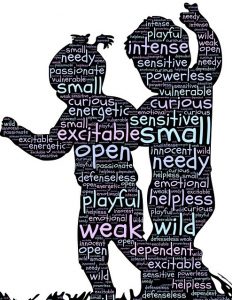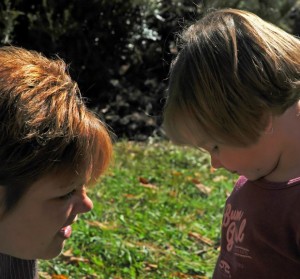Dragons aren’t very good controlling their emotions. They just breathe fire. Helping kids with self-regulation is easier than helping dragons. It’s okay for dragons to breathe fire, but not kids.

Self-regulation is the ability and skills to control our emotions, motivation, and attention or focus. It affects all of us for our whole life and it’s crucial to support children to develop a strong emotional core during the early years.
When it comes to feelings, besides understanding them, a big challenge for kids is how to regulate their own emotions. When dragons are angry they can breathe fire and roar. Is it okay for kids to breathe fire and roar at people? No, that’s not such a good choice.

Tantrums, melt-downs, and losing it, are pretty fiery but they aren’t good choices either. Kids don’t come pre-equipped with the skills and understanding to handle strong feelings. This is something they need to learn. Helping kids with self-regulation involves parents, caregivers, and other adults.
Children will learn from watching us as we go about everyday activities and interact with others. It helps if we can explain what we are feeling. Here’s an example. Last week, when packing for a short trip, the zipper broke on the suitcase. After biting my tongue so I didn’t say a bad word, I used words and tone of voice and said, “Oh, how frustrating! Now, I’ll have to change suitcases. This is a problem and I feel like screaming. Guess, I’ll take a deep breath and see if I can calm myself down.” When you do this, you are giving your child the words for an inner voice and the example of what to do.

We can also give kids hints, reminders, or clues. For example, we might say to a child, “You look upset. Would you like to ask someone for help?” If a child is having difficulty with a toy, we can ask them if they’d like to take a break for a minute or two and come back. Kids can use the hints for their actions. This way they can practice making the choice. Physical touch, like rubbing a child’s back, or giving a hand a squeeze can be effective reminders for calming down.
Waiting can be hard for adults, so it’s understandable it’s especially hard for kids. Strategies like looking at a book, singing songs, or playing an I Spy game can make waiting much easier. Speaking of books, there are many books and stories you can share for helping kids with self-regulation. Libraries will likely have some you can borrow.

In any day, there will be countless challenges for kids to cope with their emotions. They need to know it’s okay to have strong feelings. They might even feel like they have a fire inside. But, who would want to negotiate with a dragon?
